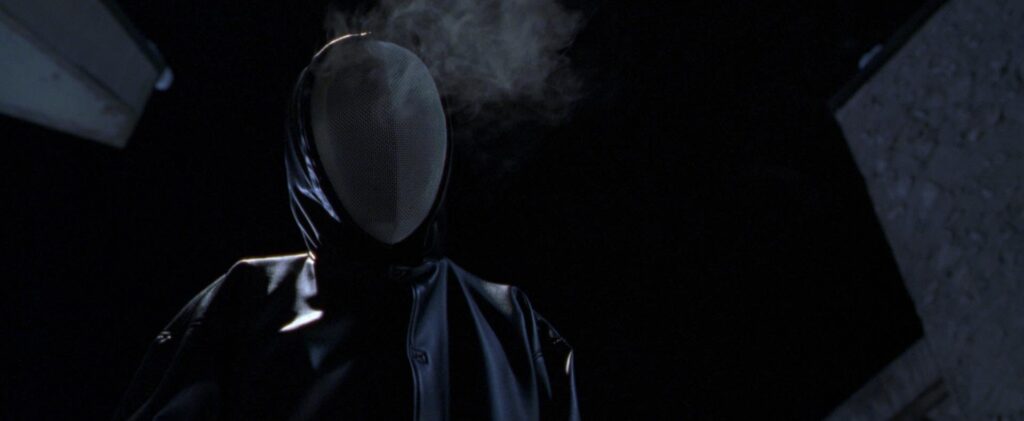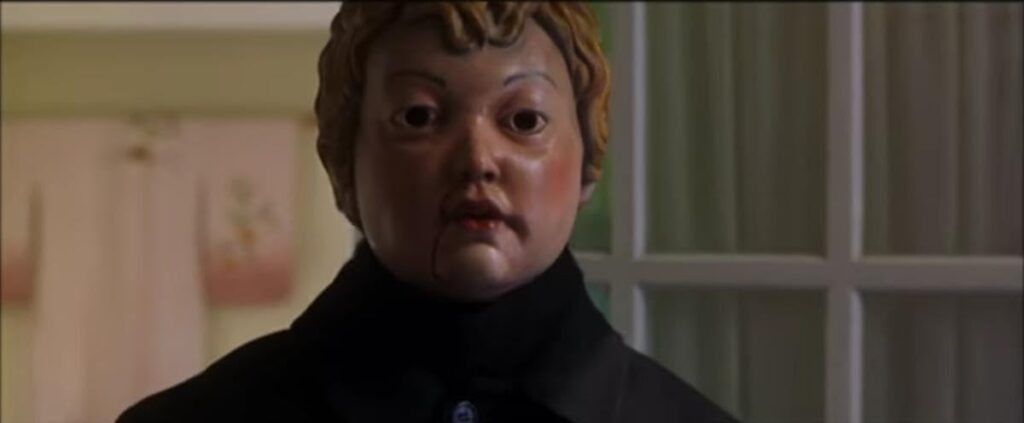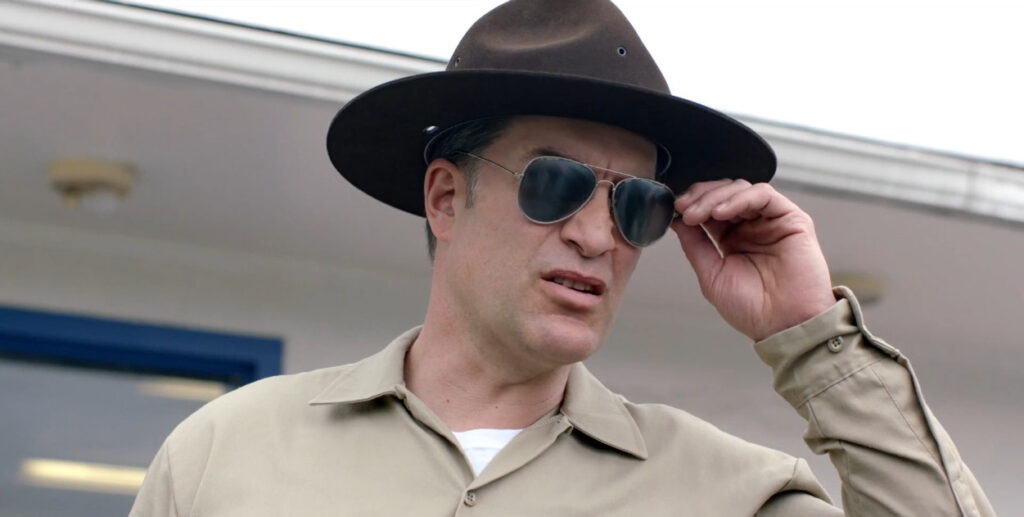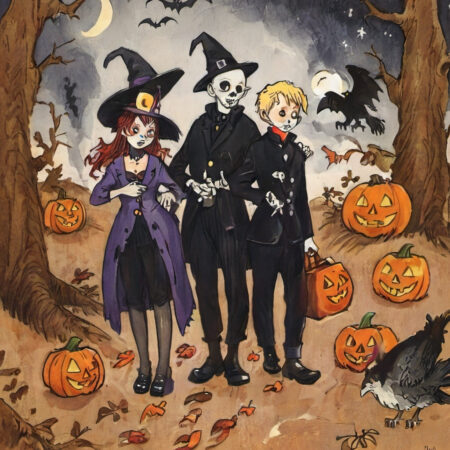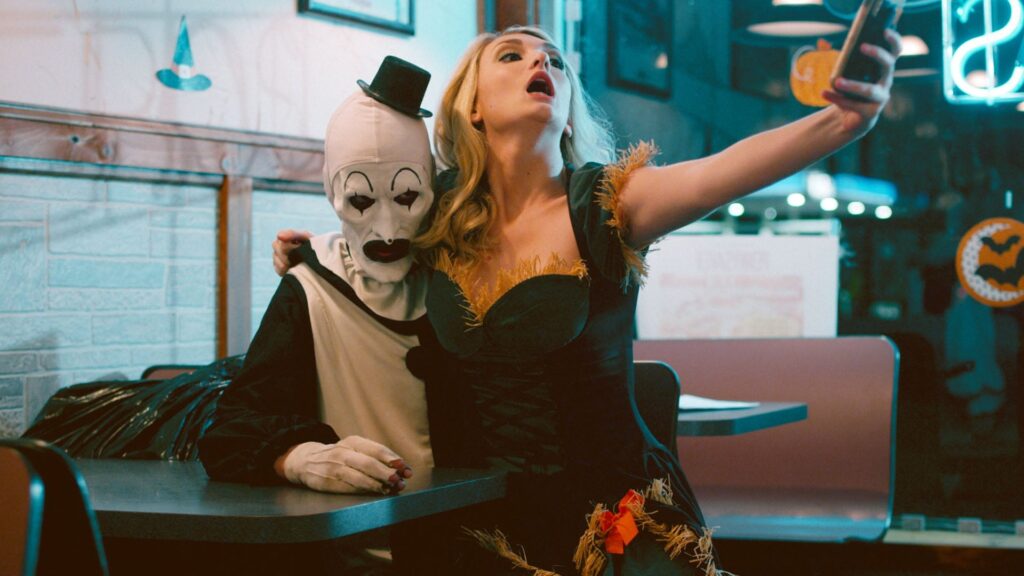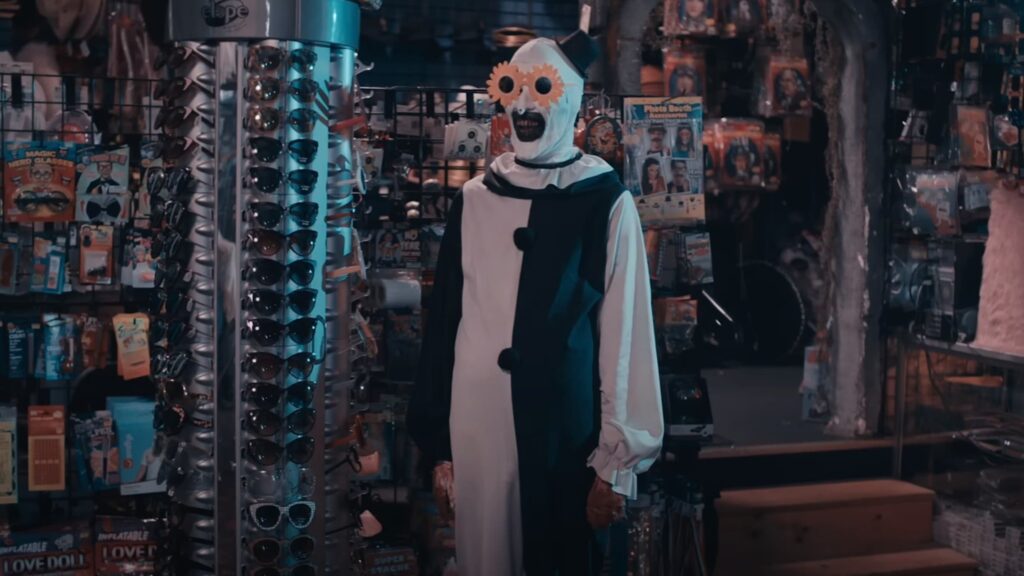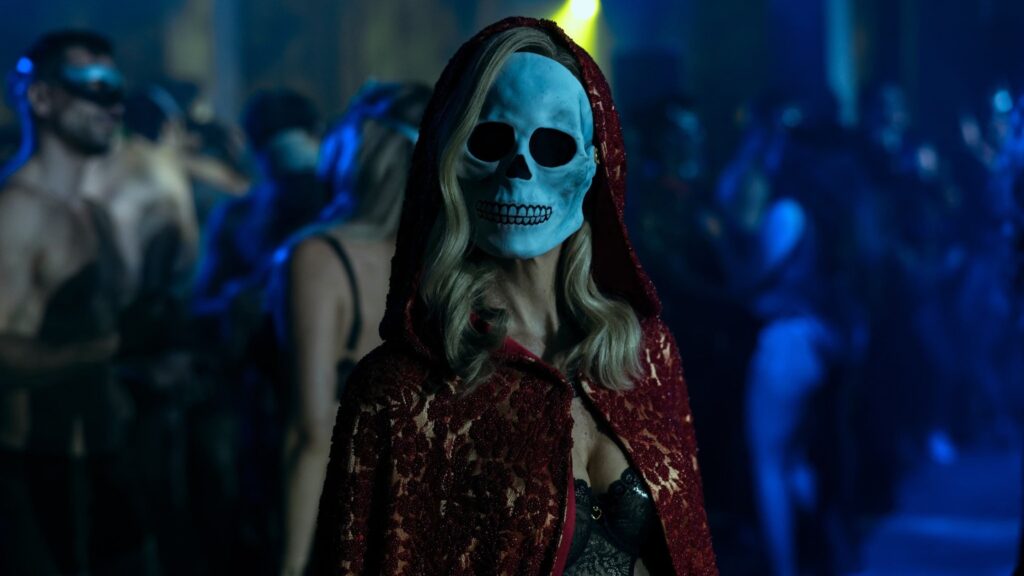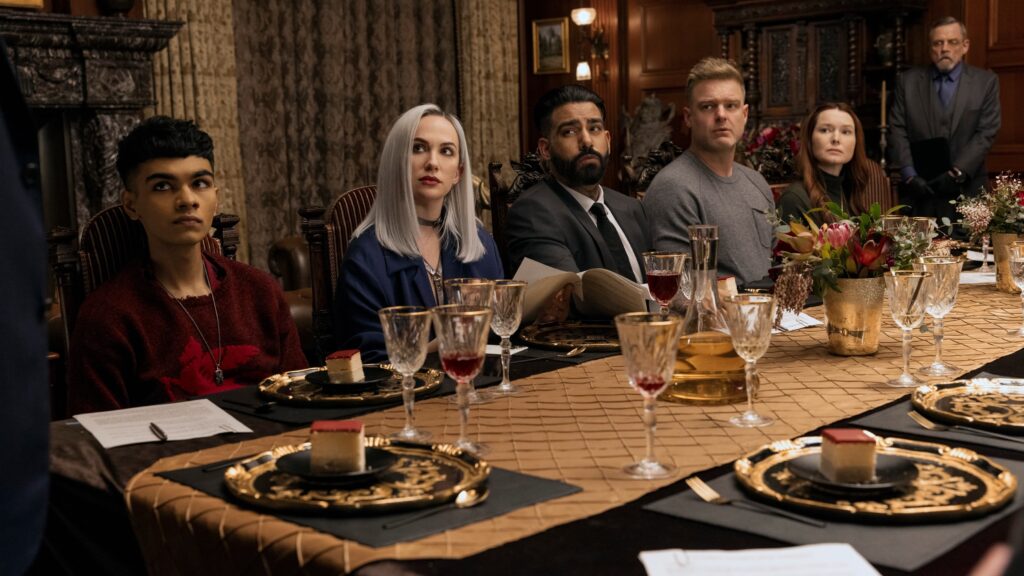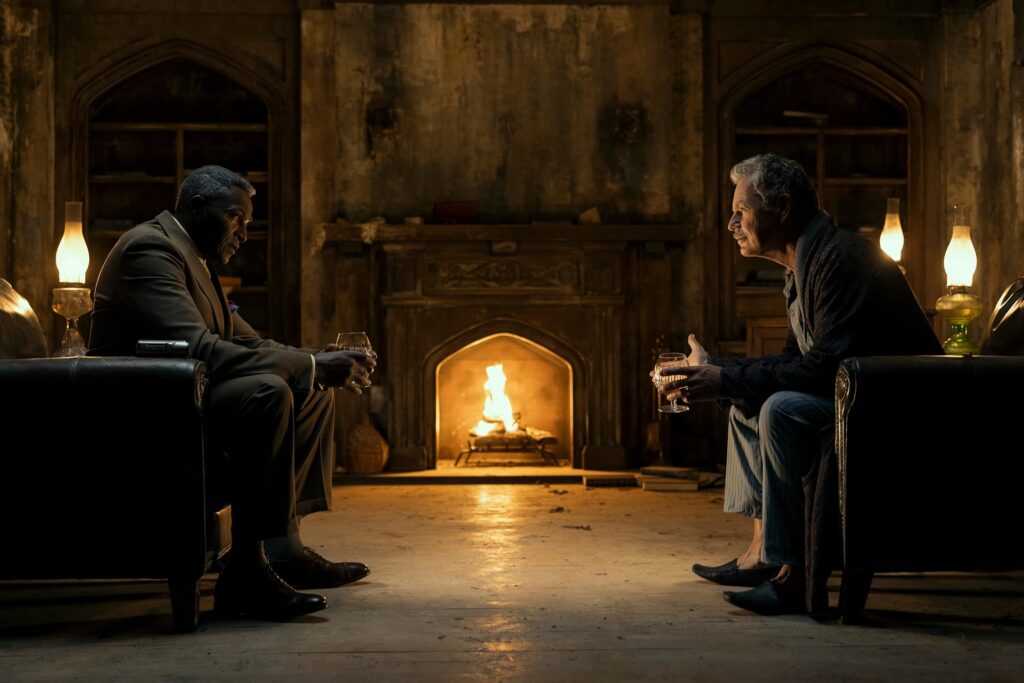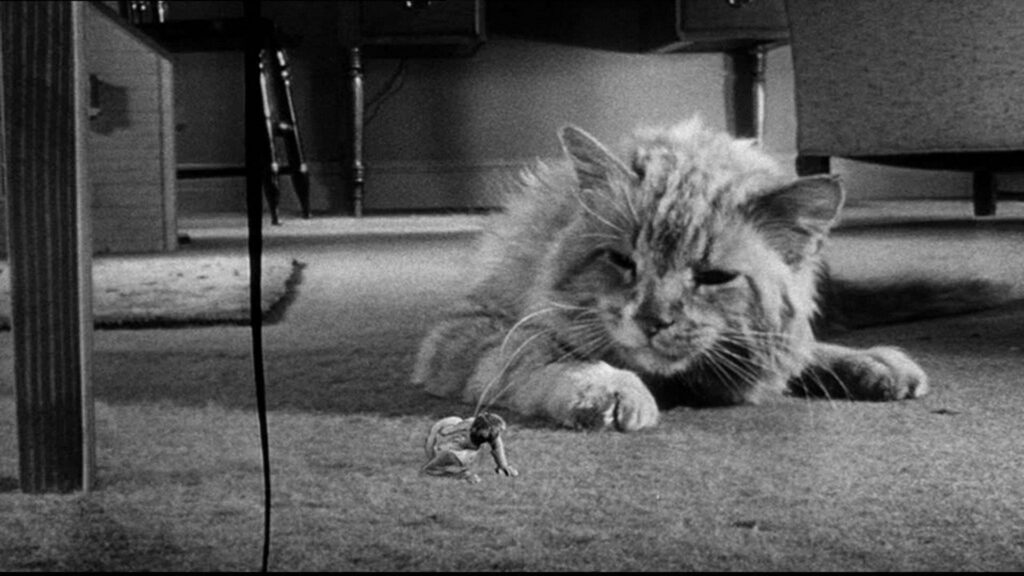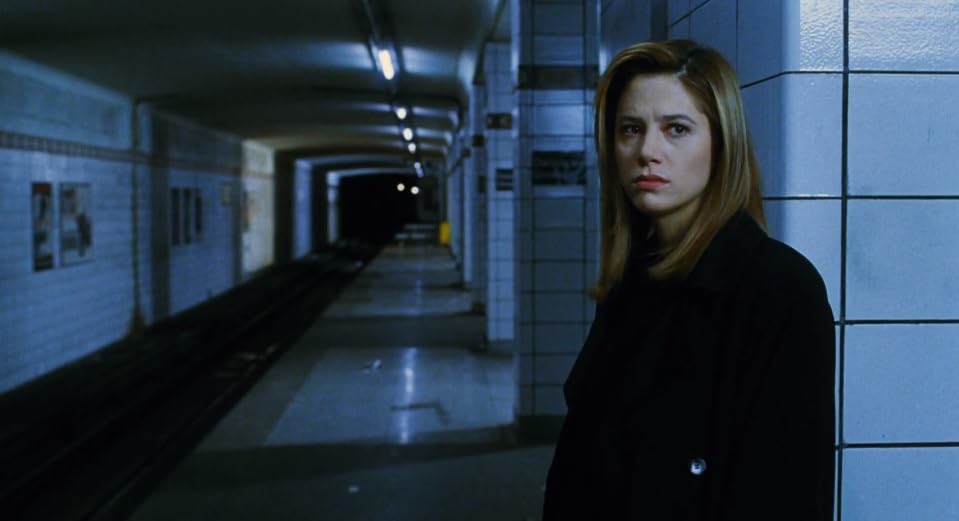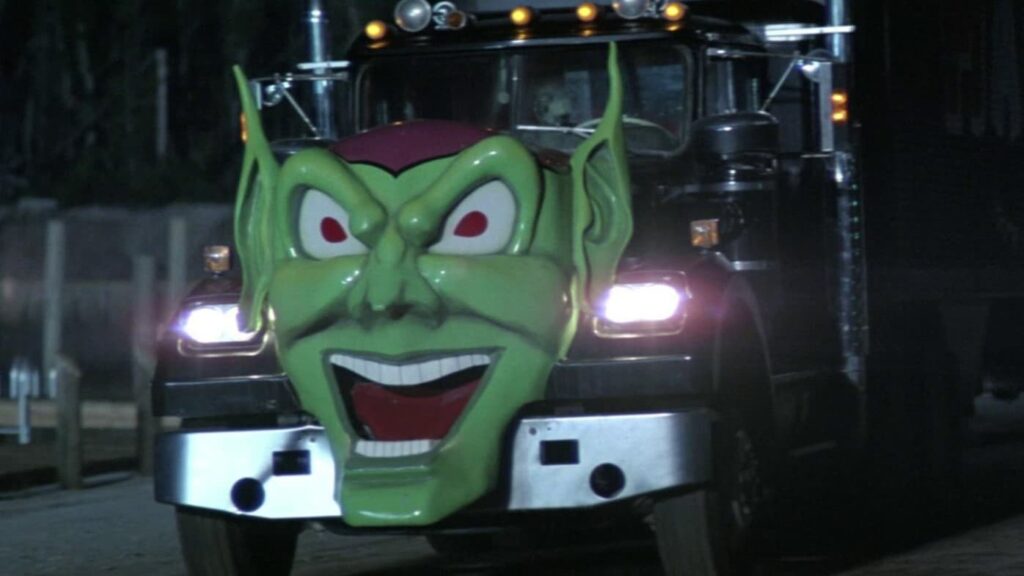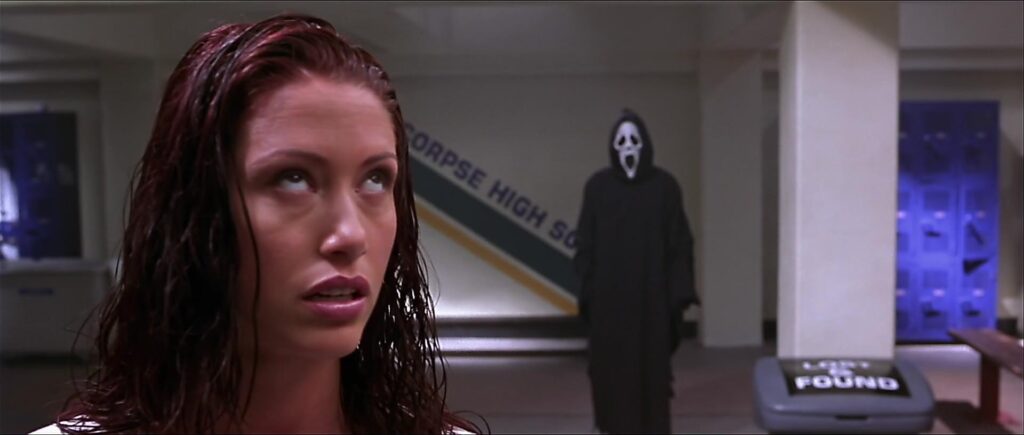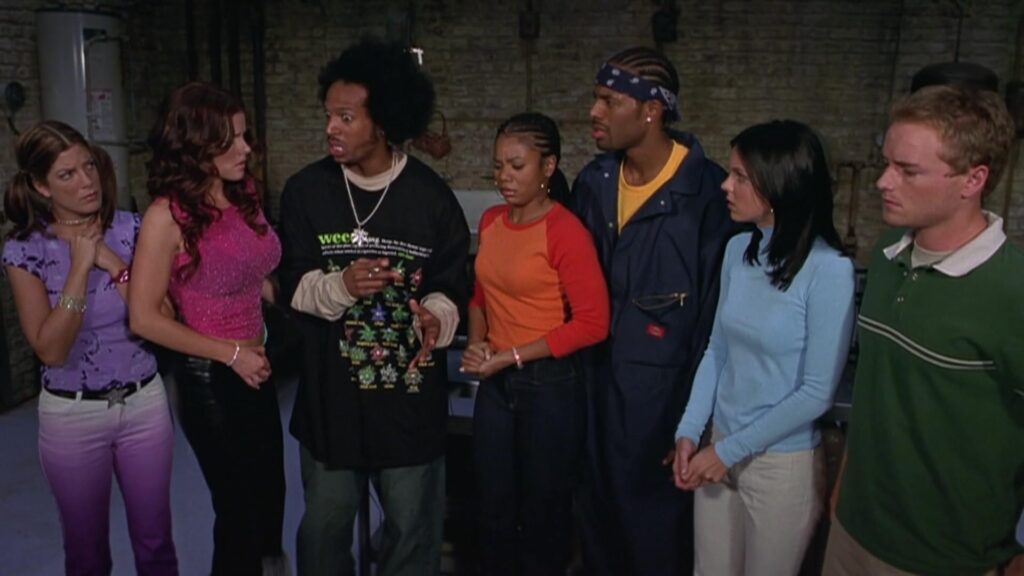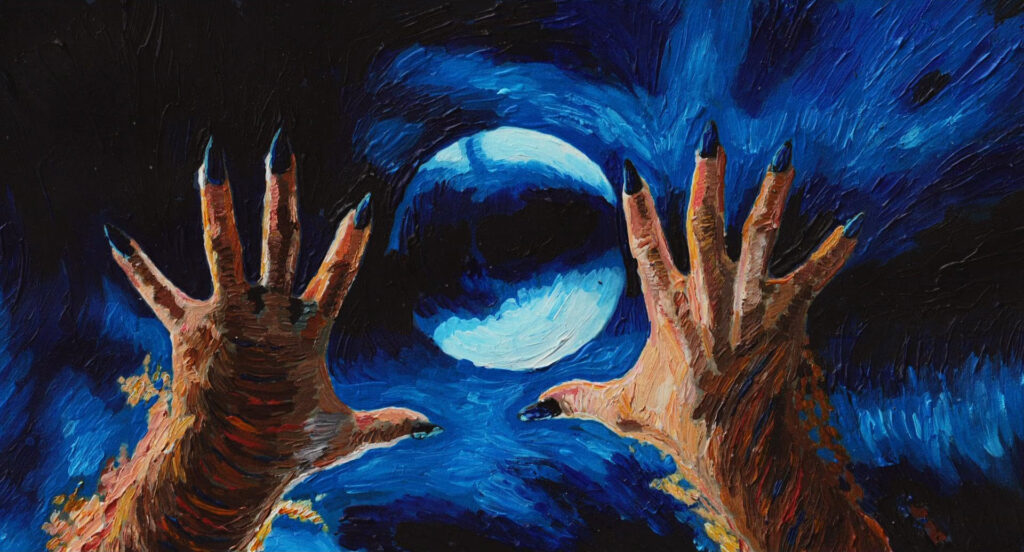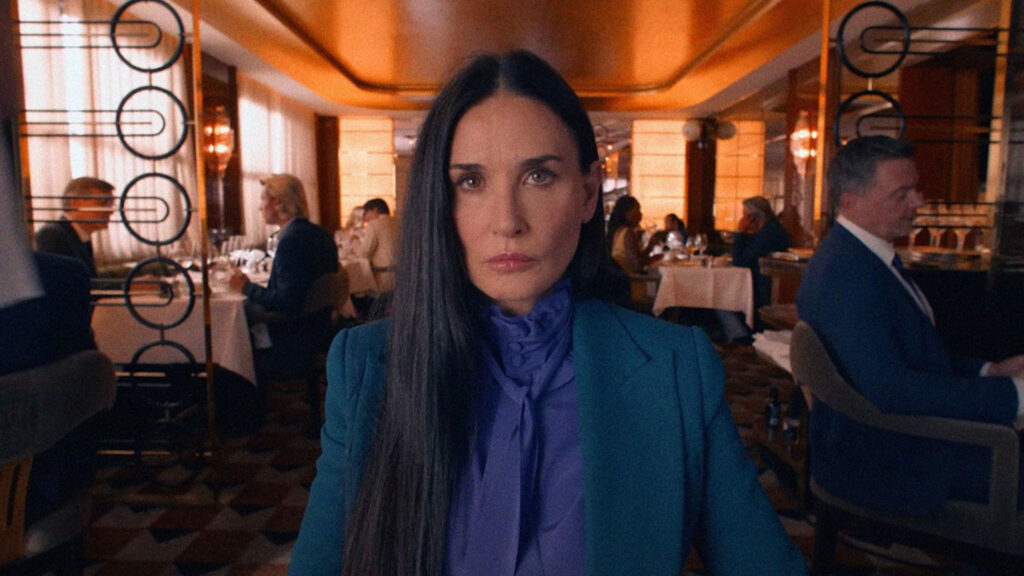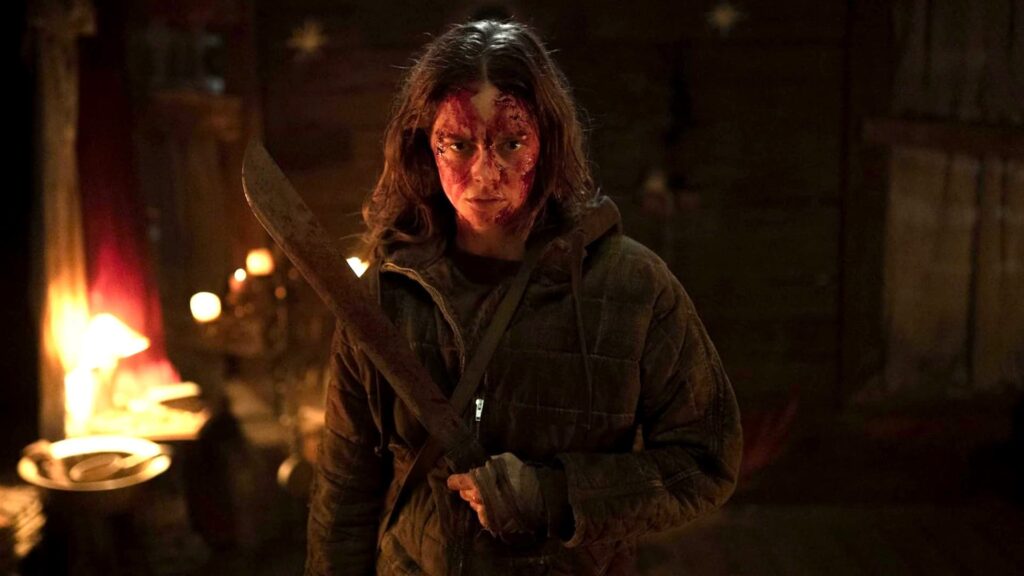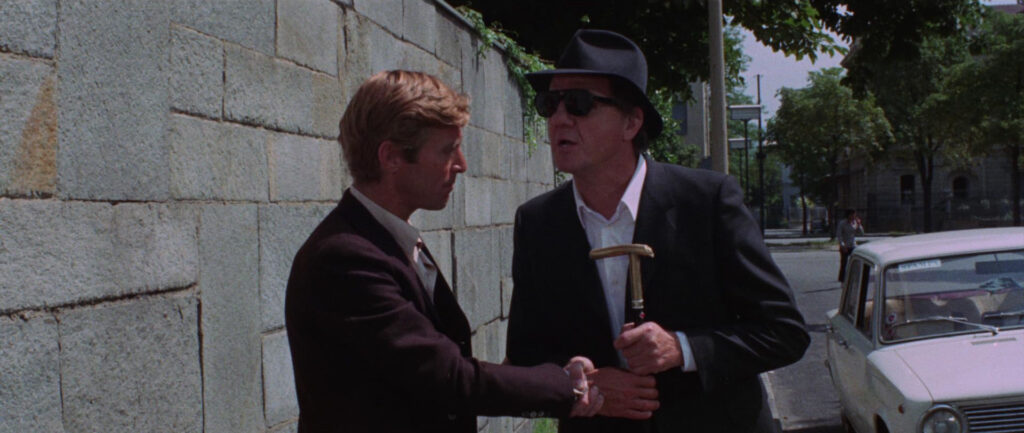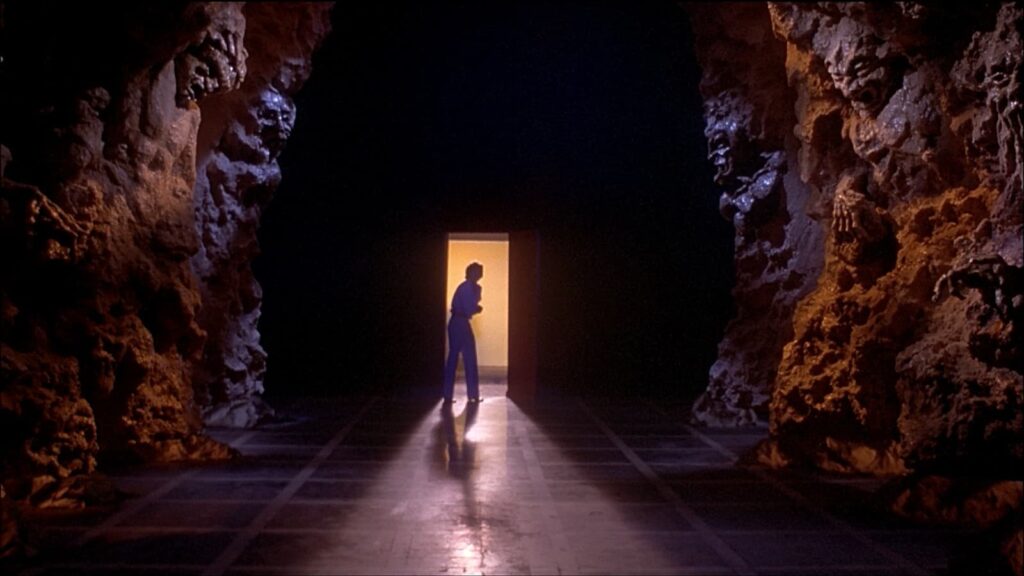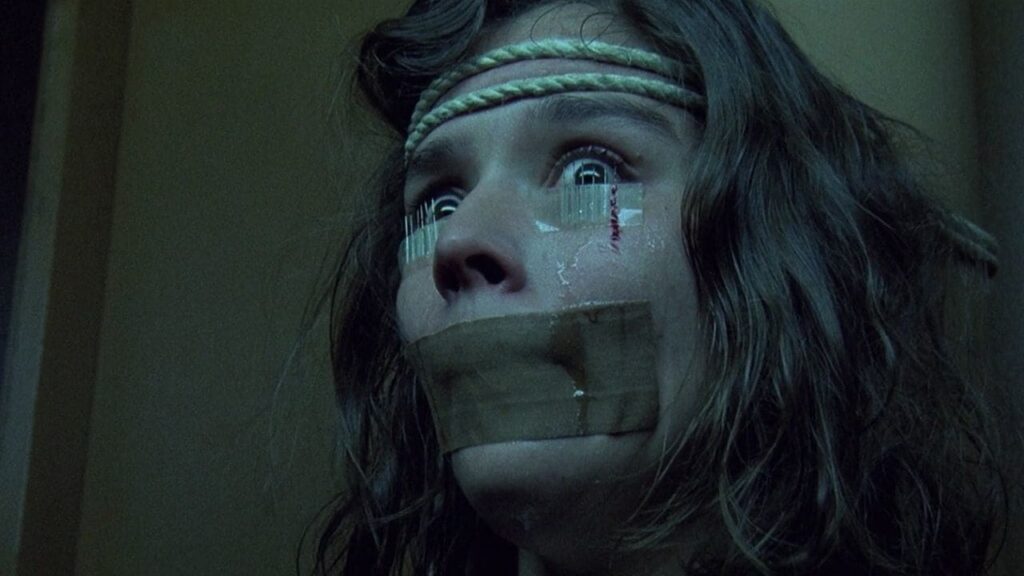The Six Weeks of Halloween 2024: Speed Round
Time flies when you’re terrified beyond the capacity for rational thought. The Six Weeks of Halloween went as fast as ever this year, and now we’re already at the big day. In accordance with tradition, this is when we engage in a Speed Round of brief thoughts on films I watched during the 2024 marathon, but haven’t otherwise covered. Usually because it didn’t fit with a weekly theme. Or maybe I just didn’t have much to say about it. Or I had too much to say about it, but the moment and/or inspiration has passed. Or it’s a rewatch of an all time classic (or, uh, a non-classic) and you don’t need anyone, let alone me, telling you more about it.
As of right now, I’ve seen 56 horror or horror-adjacent films during this Halloween season. Due to this being posted a bit before the big day, I expect that number to rise by two with the traditional Halloween night blowout tomorrow. Regardless, this number is well below last year’s count (which rivaled the pandemic fueled record of 71 back in 2020), but it’s worth noting that one of the TV shows I watched last year tracked each episode as a separate entry on Letterboxd (while this year’s big series was just one entry). Even with that, I’ve basically reverted to pre-Covid levels of viewing, which is… probably a good thing.
In accordance with tradition, we’ll have one final 6WH post next week about the horror books I read during the 2024 Halloween season, but for now, let’s dive into this 2024’s Speed Round:
Six Weeks of Halloween 2024: Speed Round
Dracula (1931) – I read Bram Stoker’s novel of the same name early on in the marathon and went on a bit of kick of adaptations (and derivative novels, which we’ll cover in another post), resulting in a mid-week theme post, but I watched a few other adaptations, including a revisit of the Tod Browning original. I’ve actually covered this several times during the 6WH, most recently watching both this and the Spanish language version a few years ago (for the record, I prefer Browning’s take over the Spanish one). This rewatch was interesting in light of having just read the book, but while they changed or condensed lots of elements, it’s still a pretty good adaptation (especially given the svelte 74 minute runtime). It’s a movie that’s grown on my every time I’ve watched it, even if it has some flaws. ***1/2
Bram Stoker’s Dracula (1992) – Which would probably be more accurately titled as Francis Ford Coppola’s Dracula, since so many liberties were taking with the story. I mentioned in an earlier post that Dracula is a character that tends to suffer from Flanderization, and this is a prime example of that tendency. Coppola adds a tragic backstory and romantic subplot to make Dracula’s character more sympathetic. Did I say romantic? It’s probably more accurate to call this movie horny. Just incredibly horny. Almost comically horny.
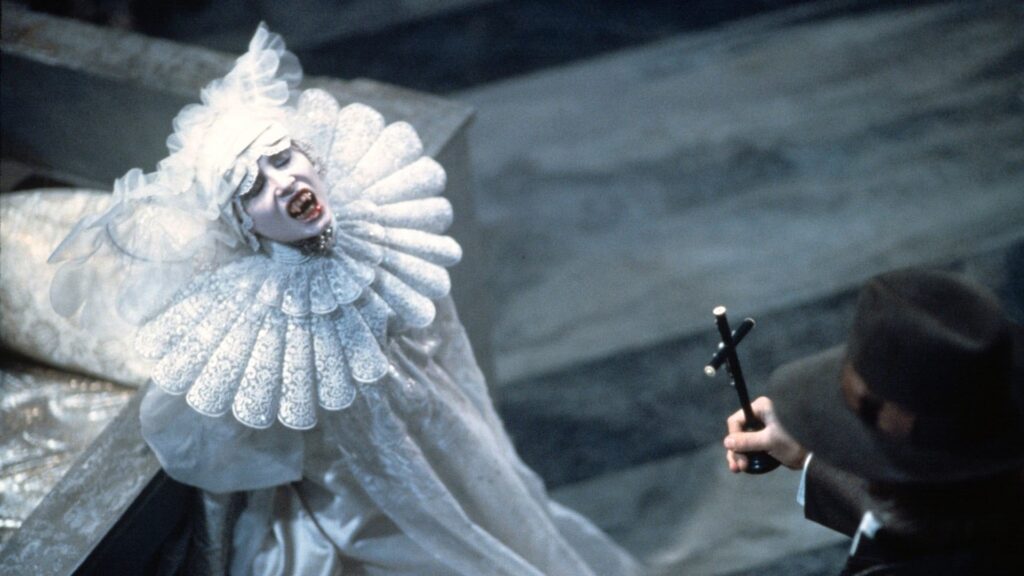
All of this is pretty interesting considering that of the straight adaptations of Dracula, this one probably contains the most elements from the book. It’s just that they added more to the story, and tweaked tons of things. In any case, it’s a gorgeous movie – Coppola throws every practical effects trick in the book at you (a sorta last gasp before CGI took hold), and he knows how to harness that sort of stylistic virtuosity in a way that doesn’t overwhelm. But as a narrative? It’s a total mess. If I hadn’t read the book or watched countless other adaptations, it would probably be difficult to follow (and indeed, that’s my memory from watching this on cable back in the early 1990s). Still a fascinating movie with tons of memorable shots, and the 4K looks great. **1/2
In Search of Darkness: Part III (2022) – Basically a talking heads documentary about 80s horror, split up into various themes or years. If you’ve seen any of the previous installments in this series, you know exactly what you’re in for. Usually this sort of thing focuses on the big hits and more famous movies, but by this point in, they’re reaching for more and more obscure movies to cover, which is nice. It’s pushing 6 hours in length (and indeed, I started watching this last year, and only finished it this year), but given the nature of the movie, it’s very easy to pop in and out of it. Nothing exceptional, but always fun to reminisce or even discover something new. **1/2
Children of the Corn (1984) – Part of The Last Drive-In Nightmareathon, an all night marathon that actually aired in August. I obviously didn’t stay up all night back then, but I caught up with some of the remaining overnight segments after the fact. I actually covered this a little over a decade ago, and my feelings about this haven’t changed very much. Fun, but basically functional and more than a little silly (one of those things that works on the page better than it does on screen). **
The Silence of the Lambs (1991) – This is an annual rewatch, I’ve already said my piece on this, but it remains a classic standby and according to Letterboxd, it’s the movie I’ve rewatched the most in the past 10 or so years in which I’ve been tracking my movie watching there. Go figure. ****
Deep Red (1975) – After the Argento theme week, I revisited this with Arrow’s excellent 4K edition. This time around, I watched the extended cut, which is a bit odd in that the surviving audio is mixed between Italian and English language. This is one of those weird quirks of Italian cinema of a certain age in that absolutely everything was dubbed. In this case, the actors are all clearly speaking English, and the American version has an English language audio track to match. The extended cut has more footage, but the English audio never survived (but they do have the Italian). So it’s a bit of an awkward watch (if you watch it in all Italian, it would be consistent, but the actors are clearly speaking English, which would still be odd), but the movie is still great. I think I probably prefer the American cut, but it’s still one of the better Giallos out there, the Goblin soundtrack still rips, and the Arrow 4K looks great. ***1/2
Student Bodies (1981) – A slasher parody made in 1981? It probably speaks to how firmly the slasher tropes and conventions were established even that early on that such a parody was possible. Tons of effective gags here: a runny tally of deaths shows up after each attack, graphics and text show up on screen indicating character’s obvious mistakes (door unlocked, etc…), the movie is set on Halloween, Friday the 13th, Jamie Lee Curtis’ birthday, the night of the big game, big parade, and the big prom. And so on. The best, and most famous bit, is when the movie basically stops so that a censor can come on screen and scold the audience (while ensuring that the film gets an R rating). It’s not perfect and some of the humor doesn’t land, but I actually quite enjoyed this. **1/2
Race with the Devil (1975) – A couple vacationing in an RV witnesses a satanic ritual and is subsequently chased by the cult (which is seemingly comprised of everyone in the tri-state area (or wherever; it’s more fun to say tri-state than “region”). At first it seems like they’re going to fumble this solid premise (doesn’t really capitalize on the isolation of the terrain or the paranoia of being amongst the local townfolk, who aren’t really off kilter enough), but the vehicular mayhem in the third act saves it. Not quite Road Warrior-levels gratuitous action, but it’s a welcome development, and you’re left with the typical 70s bleak ending. Given my general dislike for sequels and remakes, it’s worth noting that this one seems ripe for such a treatment (i.e. good premise but not a classic, could benefit from an action and suspense auteur’s talents)… **1/2
It’s What’s Inside (2024) – Technically more horror-adjacent, this body-swapping SF flick does generate plenty of suspense. It requires you to pay close attention (keeping track of who is in who’s body), but I quite enjoyed that aspect, and they put the premise through its paces, developing multiple effective conundrums with plenty of twists and turns.
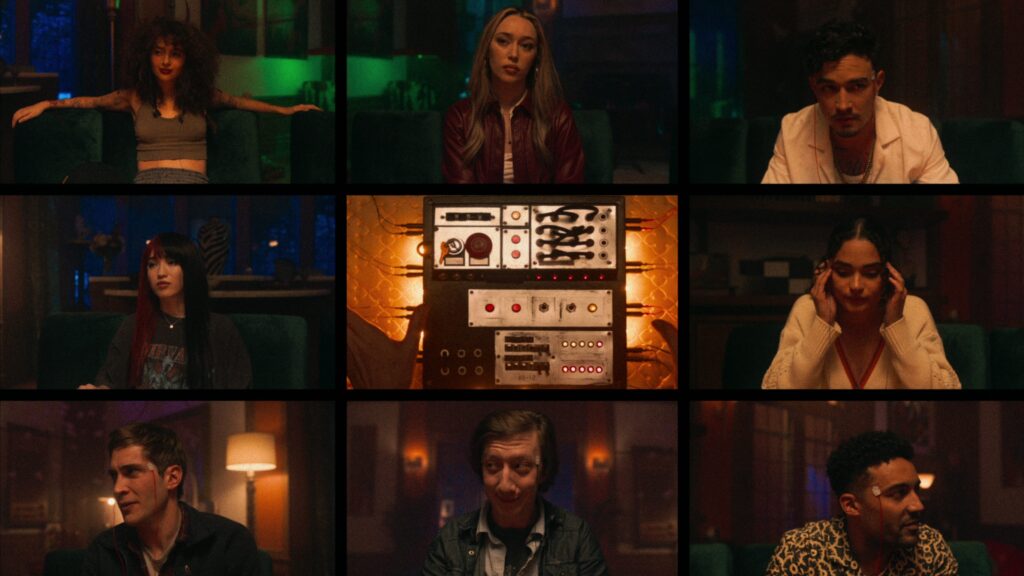
The only problem is that the characters are quite obnoxious. Nowhere near as bad as Bodies Bodies Bodies in that respect, and this struck me as a much better version of that sort of thing, but it’s still a tad annoying. Really wish I got to see this one in a theater (stupid Netflix), but it’s something that will probably show up in our year end festivities… ***
The Last Horror Film (1982) – Cheapo Troma attempt at American Giallo with Caroline Munro and Joe Spinell. Set during the 1981 Cannes Film Festival, there’s tons of obscure (and not so obscure) movie dork references (Possession! Thief! And several others are featured in background posters, etc…). The horror elements are a little more uneven, but Spinell is great (this would make a good companion piece to the superior Maniac) and the ending was better than expected. **1/2
Galaxy of Terror (1981) – The last of the aforementioned Last Drive-In Nightmareathon movies I caught up with, this is a sleazy Alien-ripoff, a cheapie Roger Corman production that looks surprisingly great but has a dull, nonsensical story. There’s some neat stuff for sure, and you get to see a pre-Freddy Robert Englund running around, but this is another one that actually might be a good candidate for a loose remake. As it is, it’s got its moments (I kinda liked the ending twist, as goofy as it was) and it’s a little fun, but it’s mostly just a curiosity. **
Scary Movie 3 (2003) – After watching the first two, I did continue to this third entry in the much maligned parody series. I would probably still recommend the aforementioned Student Bodies over any of these, but this one holds up favorably to the first two entries in the series. The targets this time around are more J-Horror related (or rather, the American remakes of J-Horror that were popular at the time), particularly The Ring, to solid effect. **1/2
The First Omen (2024) – Handsomely appointed prequel to The Omen that generates some solid scares, has great atmosphere, and a twist that I actually did not see coming. That said, the premise is ludicrous in the way a lot of modern Religious horror can be, and so it never really coheres in a way that really gets to me. It almost feels like an accelerationist plot by Hollywood, but that instinct falls into the same conspiratorial trap this movie does (not to mention its companion piece, Immaculate, which came out on top of The First Omen – both were probably in theaters at the same time – and features nearly identical Catholic born conspiracies.) As pure entertainment, it’s fine, if derivative (the last line in the film is an abomination), but deeper readings don’t hold up. Director Arkasha Stevenson is someone to keep an eye on though; she made something better than the franchise slop it could easily have become. **1/2
Transylvania 6-5000 (1985) – Dumb horror comedy about tabloid reporters going to Transylvania to track down… Frankenstein? Whatever, it’s got a great cast, with Jeff Goldblum, Ed Begley Jr., Carol Kane, Jeffrey Jones, Michael Richards, and an absolute smokeshow in Geena Davis. Alas, much of the humor falls flat, with some of the bits (particularly Kane and Richards) going on for an interminably long time (and not in the way where something can be funny, then go on too long, then go on so long that it boomerangs back to being hilarious – it just sorta lingers in that unfunny zone). The ending is pretty good though, and some of the jokes land fine. Ultimately mediocre stuff that should have been much better than it was. **
King on Screen (2022) – Bizarrely erratic documentary looking at Stephen King adaptations. Mostly talking head stuff, and the best interview comes from Frank Darabont, but the documentary just doesn’t have a good organizing principle and it’s not even particularly comprehensive either, so it ends up feeling like the sort of thing produced on a deadline that meant they just had to use what they found, rather than having some sort of overarching thesis or theme. On the other hand, it’s fun watching people talk about King and adaptations, so it’s not a complete waste either. **
Mute Witness (1995) – Underrated thriller about a mute woman who witnesses a crime and must escape from Russian mobsters. The first act is almost ludicrously tense, just perfectly executed cat and mouse stuff.
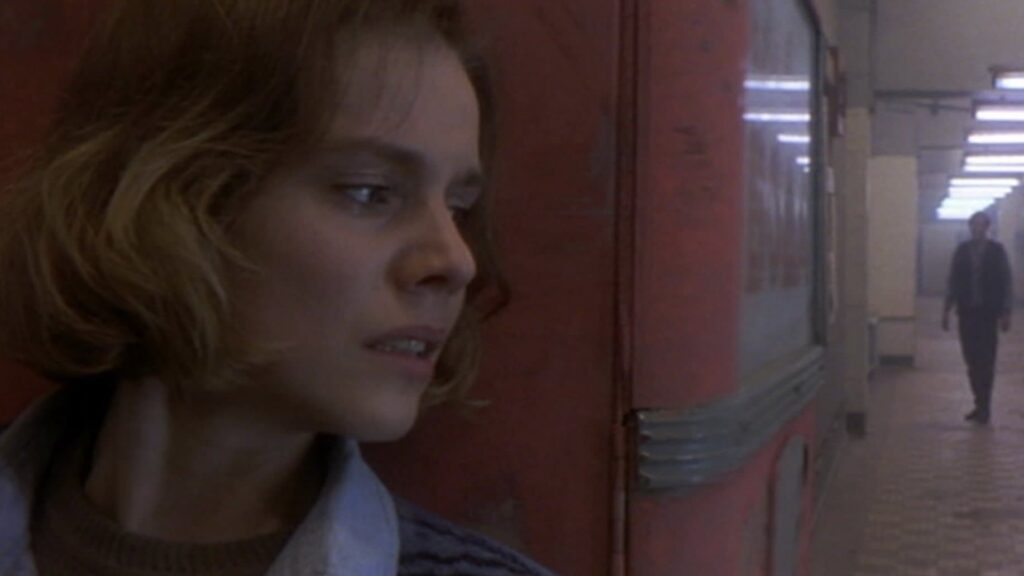
Tons of unexpected twists and turns, and some clever developments in the end (trying to be vague here, as I’m guessing most have not seen this, and the less you know about it, the better). There’s even some well integrated comedic relief that doesn’t undercut the overall suspense. Highly recommended, and the newish Arrow 4K looks great. ***1/2
Ninja III: The Domination (1984) – Wildly entertaining mashup of action, horror, and 80s cheese. A classic childhood cable discovery that seemed lost for a while, at least until Scream Factory rescued it. I always forget how much this relies on the 80s fitness craze, almost rivaling the other seminal entries (Killer Workout and Death Spa), but the added Ninja lore and action is just great. Not conventionally good, but I still kinda love it. ***
Woman of the Hour (2024) – Anna Kendrick directed and stars in this recounting of an odd bit of lore in which a serial killer went on The Dating Game (and won). The game segment and immediate aftermath is the real centerpiece of the movie, and Kendrick does a great job capturing how this happened and the immediate aftermath. The sequence at the tiki bar is expertly crafted (the way Kendrick moves from simple shot/reverse shot to a more isolated side-on angle is subtly unnerving), as is the parking lot scene. Kendrick makes good use of the frame without getting overly showy or hamfisted about it. Outside of that gameshow centerpiece, the movie is a little more disjointed, but I chalk this up to the limitations of basing this on a true story (even if I’m sure some elements are exaggerated). Really curious to see how Kendrick proceeds from here, as she’s clearly got some chops. **1/2
Tragedy Girls (2017) – Interesting little comedic slasher about two teenagers who want to increase their social media clout by usurping a local serial killer’s reputation and murdering their enemies. All well and good, but the murders tend to look like accidents, so the police don’t really put it together. Womp womp. Great lead performances from Brianna Hildebrand and Alexandra Shipp, with solid supporting roles by the likes of Jack Quaid and Kevin Durand.
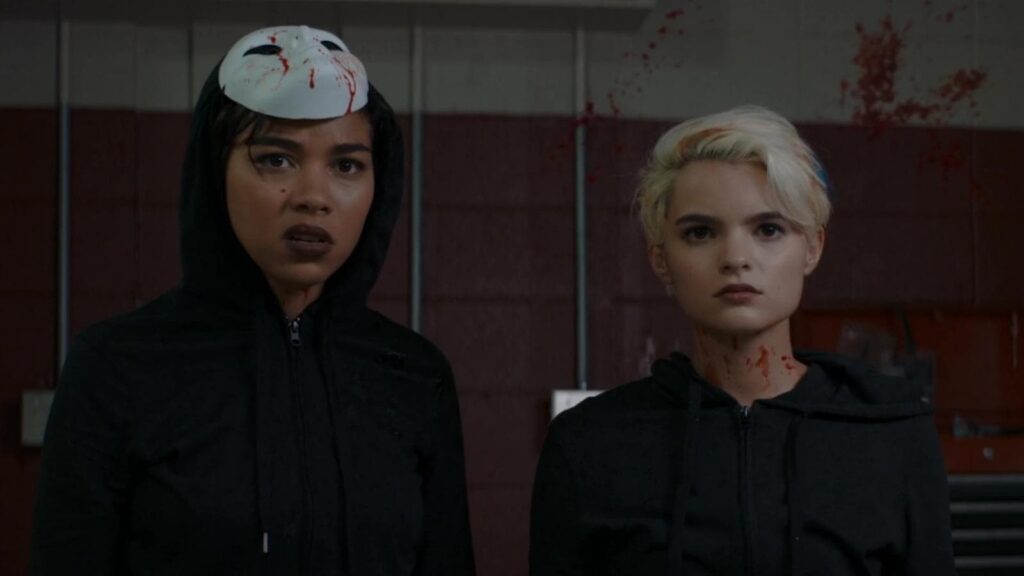
Much of the humor lands, but the commentary and satirical japes often come off as insufferably smug. If you can get past that, it’s a darkly fun movie that’s worth checking out. **1/2
Slayers (2022) – Every year, for some reason, I end up watching some sort of godawful vampire movie. Sometimes I’ll enjoy it despite it still being quite bad, other times, I’m not as fortunate. This is the latter. What a dog. It’s got a solid cast though (Thomas Jane, Abigail Breslin, Malin Åkerman, etc…) and there’s a nugget of an idea here, but man they pad the hell out of this and spend an awful lot of time delivering dry exposition about vampire lore. It’s pretty stupid and not recommended, even for fans of bad movies. *
The Convent (2000) – This is a throwback to mid-80s cheese, complete with a typical teen cast spending the night in an abandoned church, and Adrienne Barbeau wielding a shotgun. It even kinda looks like it’s from the 80s (it definitely doesn’t have that slick, early aughts nu-metal feel). It’s short and sweet and a total blast. Spoiler Alert: The doggy gets posessed.
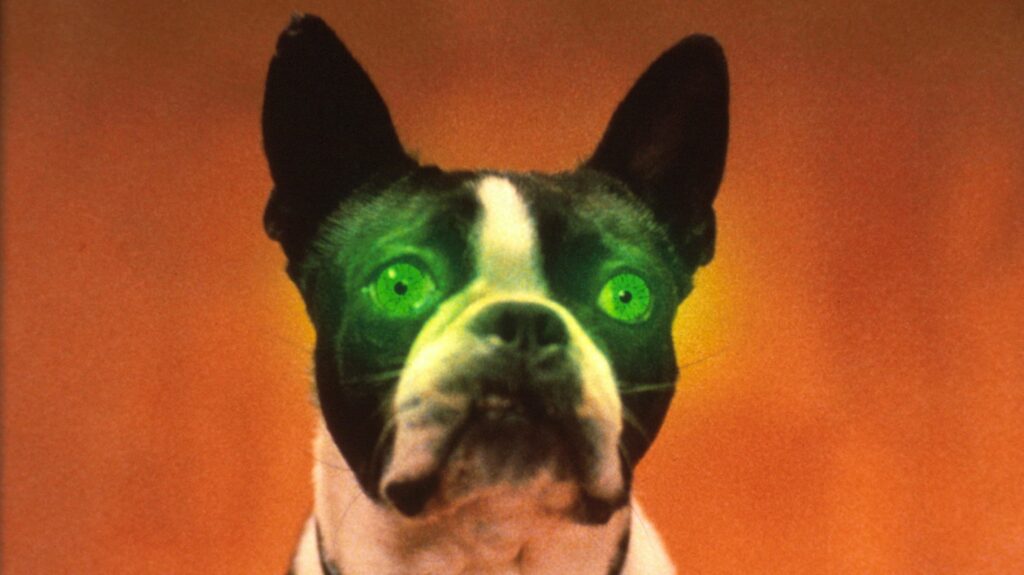
Special thanks to Final Girl’s Shocktober post ranking this #336 for pointing this one out, really glad I took a flier on it. ***
Silent Madness (1984) – A slasher from the tail end of the Golden Age, but remains true to nearly every trope and convention of the subgenre. Escaped mental patient who suffered a tragic “prank” in the past and is now out for revenge, promiscuous teens, a sorority house massacre, lots of stalking and gnarly kills (was this originally made in 3D? Some pretty blatant shots of sharp objects being pushed directly at the screen here…), the list goes on. A bit bumpy at the start, but it’s a solid little slasher. (Another obscure movie rescued by Vinegar Syndrome a few years ago…) **1/2
Strange Darling (2024) – Covers the end of a serial killer’s spree using clever nonlinear storytelling. Visually impressive, well acted, with plenty of interesting twists and some good lead performances. There are some divisive components to the story, but I don’t want to spoil anything and I was able to go with it just fine. The only really annoying thing about this is actually a text card that shows up at the beginning of the film informing us that the film was shot entirely on 35 mm (which is great, and the movie looks great, but please don’t hit us in the face with it before the movie even begins – throw it in the end credits or something – ultimately this is a small quibble, but still.) Well worth seeking out. ***
Satan’s Little Helper (2004) – Part 1 of Joe Bob’s Beelzebub Bash, this is a movie we’ve covered briefly before, but it still holds up reasonably well. Not my favorite or anything, but it’s got a goofy, mean-spirited charm that might work for some. **1/2
Jason X (2001) – I’m cheating a little, as I watched this on Friday, September 13 – a little early for the marathon, but worth calling out as one of the more fun entries in the Friday the 13th series. Three great components of this: The Cronenberg cameo, the liquid nitrogen gag, and the sleeping bag callback to part VII. Lots of other ridiculous but fun wrinkles in this (and very much a product of its time), but it may be a bit underrated at this point. **1/2
Smile 2 (2024) – Well executed sequel that suffers a bit from, you know, being a sequel. The novelty of the premise is gone and at over two hours long, that could get a bit tedious, but it’s all executed well enough that it doesn’t really get boring. After an amazing first scene (shot as one take) that provides the connective tissue between the first movie and this sequel, the Smile curse is passed on to a pop-star about to embark on a comeback tour. Honestly, while there are several crafty jump scares and the trademark smiling face remains creepy, the daily rigors of being a pop star seems almost as horrific. The ending cheats a bit, and implies that a pretty significant portion of the film didn’t actually happen, but it capitalizes on something kinda clever (even if it’s a bit predictable when you find out who our protagonist is, it’s still effective when you see it come to fruition). Just a dumb observation – the demon is presenting our protagonist with an alternate version of reality, while presumably driving her body in the real world, so, like, did the demon have to learn the dance routines (like, pop, twist, shake, pivot, then hop) and meet with fans, sign autographs, and stuff? It’s unclear. Anyway, it’s better than expected, but still suffers from sequelitis. **1/2
Horror in the High Desert (2021) – Interesting mock documentary with a found footage climax that works reasonably well. It starts off a bit slow and conventional, profiling a dorky outdoorsman who can’t pronounce his Rs and went missing after going out on a multi-day hike. The mock doc stuff works reasonably well, though it suffers a bit from amateur acting and overuse of its soundtrack. The overall photography doesn’t look great (still functional, but clearly some budget would have helped here), but the final 15 minutes are so are quite effective (YMMV, but it worked fine for me). Also, they devised a clever and logical reason for him to keep filming, always a bit of a challenge in found footage. Not exactly a classic, but a solid entry in the sub-genre, and there are multiple sequels that I’m interested in checking out (was actually going to make this a mid-week theme, but ran out of time this year). **1/2
Late Night with the Devil – Part 2 of Joe Bob’s Beelzebub Bash, I was actually fortunate enough to see this in the theater earlier this year. Not exactly a found footage film, but not quite a mock documentary either, it sorta features elements of both… and more. Indeed, I think it probably cheats a little bit, straying from the idea that you’re watching a late night talk show that aired live in 1977 (with behind-the-scenes documentary footage spliced in). On the other hand, I found it riveting from start to finish. David Dastmalchian plays the talk show host and does quite well (it’s a departure from the types of roles he is usually cast in, and he rises to the challenge) and the supporting cast is all great, particularly Ingrid Torelli as the young possessed girl and Ian Bliss as the skeptic. It doesn’t quite reach the level of verisimilitude that Ghostwatch (a clear analogue) achieved, but it’s worthwhile. It’s a shame that there’s an AI controversy over some minor imagery used in the film (which was done before any recent AI provisions in contracts, etc…) that has dominated the discourse about this, because it’s actually quite good and worth seeking out. ***
Phantom of the Paradise – Phantom of the Rock Opera. Or cantata. Whatever. Built on the foundation of Phantom of the Opera, but incorporating elements of Faust and even The Picture of Dorian Gray, with Brian De Palma’s delirious visual style ramping up the energy. The story also has some prescient criticisms of the music industry, including an anticipation of auto-tune that was pretty amusing to see. It’s all very relevant, even to this day. Unfortunately, the music is kinda pants, though you could convince me that it gets better with repeated viewings (and especially with a crowd).
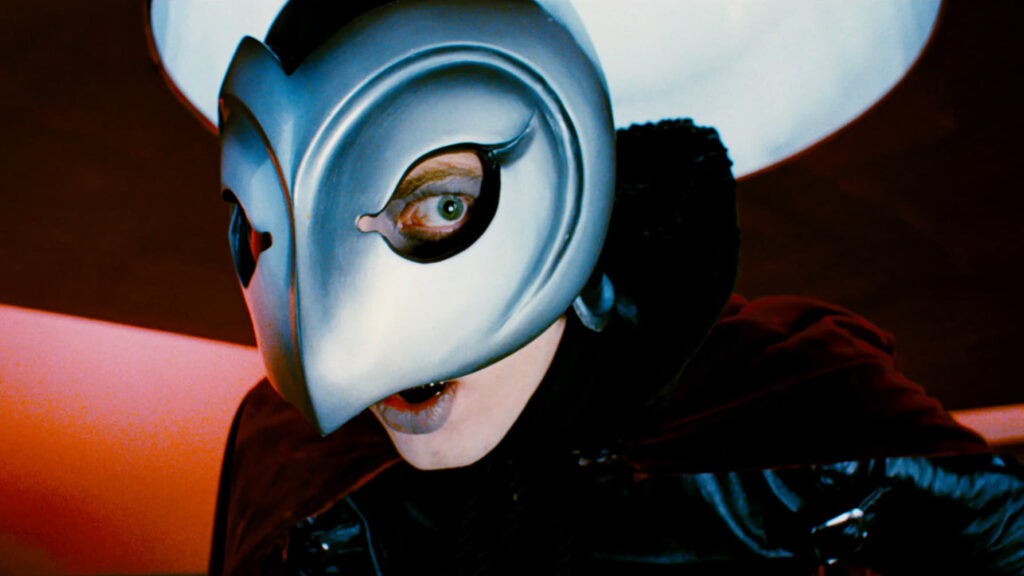
I can see why this has garnered such a cult following, though the near universal praise is a bit strange to me. I mean, who among us hasn’t felt the urge to don a cape and seek revenge against those who’ve wronged us, but this sort of kitschy experience doesn’t always work for me. I’m just not much of a musical guy either, and while De Palma’s bravura camerawork kept my attention, I just didn’t really connect with this the way everyone else seemingly does. **
The Rocky Horror Picture Show – I had this idea to do mid-week Horror Musicals theme, but ran out of mid-weeks to do it. I really wanted to catch up with the aforementioned Phantom of the Paradise, and while I was at it, I thought I’d give another chance to The Rocky Horror Picture Show. I’d seen bits and pieces of this one over the years, usually in the background of some party or bar or something, but I’ve never seen it all the way through, and sadly, I still have not seen it in its true environment: a midnight screening at a movie theater with a raucous crowd. Like Phantom, I can see why this has such a big cult following, and while the music isn’t exactly my thing, it’s absolutely catchy and totally the sort of thing that I could see a participatory crowd getting into. That being said, I’m just not a musical guy, maybe there’s something broken in here, whatever, but I just don’t seem to connect with this sort of thing. **
Trick ‘r Treat – An annual tradition on Halloween night, I’m excited to try out the brand spankin new Arrow 4K. Will hopefully be an upgrade over the old Blu-Ray, though it’s not like that one was bad or anything (and the difference between BD and 4K is not as big as DVD to BD). ***1/2
Halloween – Duh. (Another Halloween night tradition for tomorrow, will be watching the Scream Factory 4K.) ****
Another successful Halloween season in 2024, and I already have ideas for the 2025 marathon. In the meantime, stay tuned, as we’ll cover some Halloween season’s readings on Sunday. Have a great Halloween everyone!
